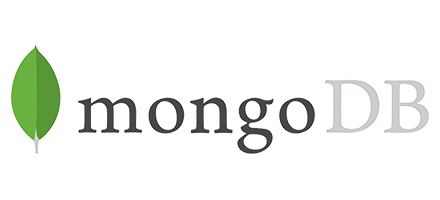Here’s an overview of what MongoDB does:
Document-Oriented Storage
MongoDB stores dataData Data is a set of quantitative and qualitative facts that can be used as reference or inputs for computations, analyses, descriptions, predictions, reasoning and planning. in flexible, JSON-like documents, meaning fields can vary from document to document and data structure can be changed over time. This model allows for the storage of complex hierarchies and structures easily, making it well-suited for storing unstructured and semi-structured dataStructured Data Structured data refers to highly organized information that can easily be added into, managed, and searched for in a database.
Scalability
MongoDB is designed for scalability, using features like sharding (distributing data across multiple machines) and replication (creating multiple copies of data for redundancy and increased availability). This allows MongoDB databases to scale horizontally, supporting large volumes of data and high throughput operations.
High Performance
MongoDB offers high performance for both reads and writes. Its indexing capabilities allow for fast data retrieval, and it supports embedded data models, reducing the need for expensive join operations. This makes it particularly efficient for read-heavy applications or those requiring real-time analyticsAnalytics Analytics is the active study of different types of data with the aim of discovering meaningful patterns and translating these into insight (such as historical analyses and forecasts), or action (such as those intended to improve business performance)..
Aggregation Framework
MongoDB includes a powerful aggregation framework for performing complex data aggregation operations, similar to SQL GROUP BY clauses but more flexible and powerful. This is useful for transforming and combining data in various ways to support analytics and reporting.
Rich Query Language
MongoDB supports a rich query language that allows for filtering and sorting data, field projections, range queries, and more. It also supports updates to documents and a variety of atomic operations, which are critical for ensuring data integrity.
Flexible Deployment
MongoDB can be deployed in various environments, including on-premises, in the cloud (with MongoDB Atlas, its fully-managed cloud database service), or in a hybrid setup. This flexibility ensures that businesses can choose the deployment model that best fits their needs.
Strong Consistency
MongoDB offers strong consistency with its replication feature. By default, reads and writes are done on the primary replica to ensure that users always get the most recent version of the data. However, it also offers eventual consistency for read operations from secondary replicas, providing flexibility according to application requirements.
MongoDB is widely used across various industries for building applications that require a flexible, scalable database capable of handling a wide variety of data types, including mobile apps, contentContent Content refers to a material or document released in various forms (such as text, image, audio, and video) and created to inform, engage or influence specific audiences. management, real-time analytics, and more. Its document model is particularly well-suited for applications with rapidly evolving data models and scalability requirements.
See how Pipeliner’s enterpriseEnterprise Enterprise (in the context of sales) is a relatively large organization typically composed of multiple levels, locations, and departments which need multi-layer software systems that support collaboration across a large corporate environment.-scale API integration platform can transform your business. Request a demo today of MongoDB integration and automation.
About MongoDB
MongoDB is a popular open-source NoSQL database known for its flexibility, scalability, and performance. Unlike traditional relational databases that use tables and rows, MongoDB is document-oriented, storing data in JSON-like documents with dynamic schemas (known as BSON), making the integration of data in certain types of applications easier and faster.

Connect App to Pipeliner CRM Now
Learn More About Pipeliner CRM
Take a no-obligation 14 day trial of Pipeliner CRM.
No credit card info required – just experience for yourself how it could impact your sales.
